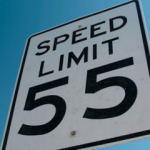 An interesting report from Chicago Tribune writers Tony Briscoe and Joe Mahr reveals that some Chicago suburbs might be biased against non residents when it comes to officers handing out speeding tickets. The report focuses a lot on the small Western suburb of Wayne, known for its reputation as a horse friendly Suburb and notably low speed limits:
An interesting report from Chicago Tribune writers Tony Briscoe and Joe Mahr reveals that some Chicago suburbs might be biased against non residents when it comes to officers handing out speeding tickets. The report focuses a lot on the small Western suburb of Wayne, known for its reputation as a horse friendly Suburb and notably low speed limits:
“A Chicago Tribune analysis of three years of traffic stop data shows that Wayne leads the region in how much more likely outsiders are to get speeding tickets than residents. Those pulled over for speeding were nearly three times as likely to be handed a ticket if they live outside Wayne than if they live in Wayne.”
The report does mention that obviously more outsider cars will be stopped than resident cars just due to the fact that tons of people drive through different towns on their trips. However it’s not just that numerically more cars passing through towns are out on the road, multi year analysis has shown that in most Chicago suburbs and some very much more than others, you are more likely of being given a ticket as a nonresident than a resident if you are stopped.
“But an analysis of traffic stop data from 2012 through 2014 also revealed that among those who got pulled over, many suburbs were more likely to issue speeding tickets to nonresidents. The Tribune examined traffic stops for speeding and compared the ZIP codes of t he drivers to those of the communities where they were pulled over. On average, drivers with a listed ZIP code from outside that community were about 8 percent more likely to get a speeding ticket.”
That number isn’t too high in a vacuum but looking more closely at each specific suburbs ticket numbers as the Tribune did, there some alarmingly high numbers.
“In some suburbs, however, the odds of getting a ticket are dramatically higher if a driver is an outsider.
•River Forest, a near west suburb where nonresidents, once stopped, were 43 percent more likely to get a ticket.
•Sugar Grove, a far west suburb where the odds of being ticketed, once stopped, increased for nonresidents to 55 percent.
•Itasca, a suburb west of O’Hare International Airport where the odds for nonresidents were also 55 percent higher.
But the biggest difference could be seen in Wayne.”
During the Tribunes three year examination on Wayne, only 29 residents were stopped for speeding, and only 8 were given tickets. 1,379 non residents were stopped during that stretch and about 81 percent were given tickets. Basically as the Tribune puts it, “To put it another way, on average, a nonresident was written a speeding ticket once a day while a resident was cited for speeding about once every four months.”
The Wayne police department believes that the simple answer is that the residents inside the town are more aware of speed limit rules and trap areas than non residents. “We don’t treat anyone differently than anyone else,” Callahan said. “We don’t stop a lot of our residents because they are aware of the speed limit. The village embraces the low speed limit.”
There’s probably some truth to that statement and he also mentions that officers look at the seriousness of the offense when ticketing. Non residents seem more likely to be prone to flagrant speeding. Defense Attorney Donald Ramsell on the other hand thinks this is a problem and that the Police at times feign their ignorance of a drivers hometown or whether or not that made any difference in the ticketing.
“But Ramsell, the defense attorney, said police officers can’t feign complete unawareness of the residency of the drivers they pull over. Ramsell, a former chairman of the Illinois State Bar Association Traffic Law Section Council, said that after more than 30 years practicing traffic law, he believes some law enforcement agencies target out-of-town drivers, especially those with out-of-state plates.
“Out-of-state drivers are less likely to challenge that ticket in court since they don’t live there,” Ramsell said. “I think police officers see those drivers as easier tickets, because they won’t face any type of scrutiny over the validity of the ticket.”
Ramsell thinks that because the Police are not violating discrimination policies based on race, religion, or gender, that this discrimination is being overlooked:
“The problem, Ramsell said, is that while the practice might be controversial, it’s not illegal discrimination if it doesn’t cross into protected areas, such as race, religion, ethnicity and sexual orientation.
In the past, traffic stop data have been examined for racial discrimination by law enforcement. Though legal experts in Chicago say they aren’t aware of studies on geographic bias, Ramsell has his own theory to explain the apparent prejudice.
“How many (local) drivers, when they get pulled over, say the same thing: ‘I pay your taxes. I pay your salary.’ People who live in town expect a break and they express that viewpoint.”
If you would like to challenge a speeding ticket Laura Law would be happy to represent.

